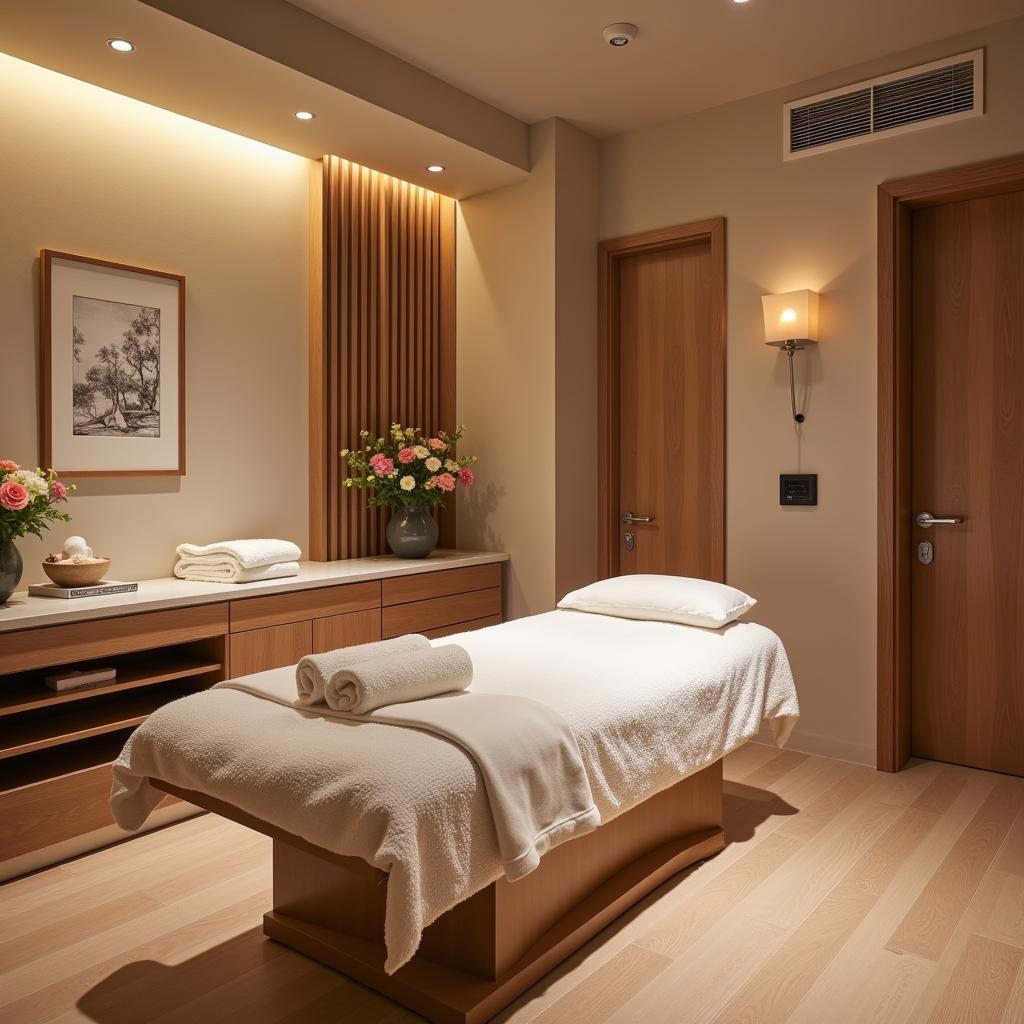The Spa Culture has evolved dramatically over the centuries, transitioning from simple communal bathing practices to sophisticated wellness rituals. Today, it represents a global pursuit of relaxation, rejuvenation, and self-care, encompassing a wide range of treatments and philosophies. This article delves into the fascinating history, evolution, and diverse facets of the spa culture. spa culture chembur offers a glimpse into this world.
A Journey Through Time: The History of the Spa Culture
From ancient civilizations to the modern era, the pursuit of well-being through water has shaped the spa culture. Ancient Romans, Greeks, and Egyptians recognized the therapeutic benefits of mineral springs and developed elaborate bathhouses, laying the foundation for what we know today as spas. These early spa experiences were not just about physical cleansing; they were social gatherings, places for relaxation, and even spiritual purification.
The Modern Spa Culture: A Holistic Approach to Wellness
The modern spa culture has expanded beyond simple hydrotherapy to incorporate a diverse array of treatments, including massages, facials, body wraps, aromatherapy, and alternative therapies. This holistic approach recognizes the interconnectedness of mind, body, and spirit, emphasizing overall well-being. the spa culture Commercial exemplifies this modern approach.
What Does Spa Culture Mean Today?
Spa culture today is characterized by a focus on personalization and customized experiences. Spas cater to individual needs, offering tailored treatments and programs designed to address specific concerns, from stress reduction to anti-aging. The emphasis is on creating a sanctuary for relaxation and rejuvenation, where guests can escape the pressures of daily life and reconnect with themselves.
 Modern Spa Treatment Room
Modern Spa Treatment Room
Exploring Different Spa Traditions Across the Globe
The spa culture varies significantly across different cultures, reflecting unique traditions and philosophies. From the traditional hammams of Morocco to the onsen of Japan, each spa experience offers a distinct perspective on wellness. spa culture chembur Informational, Transactional offers insights into various spa traditions. For example, Ayurvedic spas in India emphasize balancing the body’s energies through specialized massages and herbal remedies, while Korean spas, often referred to as “jjimjilbangs,” provide communal bathing experiences combined with sauna rooms and relaxation areas.
“Understanding the cultural nuances of different spa traditions can enrich the experience and provide a deeper appreciation for the diverse approaches to wellness,” says Dr. Anya Sharma, a renowned anthropologist specializing in spa cultures.
The Future of the Spa Culture: Embracing Technology and Sustainability
The spa culture continues to evolve, embracing advancements in technology and a growing focus on sustainability. Innovative treatments utilizing cutting-edge technology are becoming increasingly popular, promising enhanced results and personalized experiences. Furthermore, there is a growing emphasis on eco-friendly practices, with spas incorporating sustainable products and minimizing their environmental impact. “The future of the spa culture lies in its ability to adapt and innovate, while staying true to its core values of promoting well-being and self-care,” explains wellness expert, Michael Chen.
Conclusion: Embracing the Transformative Power of the Spa Culture
The spa culture offers a powerful pathway to enhance well-being, offering a diverse range of treatments and traditions to suit individual needs. From ancient bathing rituals to modern wellness practices, the spa culture continues to evolve, providing a sanctuary for relaxation, rejuvenation, and self-discovery. Embracing the spa culture is an investment in one’s overall health and happiness. You may also want to look at anahata resort and spa to ubud palace and spa girl number Commercial.
FAQ
- What are the key benefits of experiencing the spa culture?
- How can I choose the right spa treatment for my needs?
- What are the different types of spa cultures around the world?
- How often should I visit a spa for optimal benefits?
- What is the difference between a day spa and a destination spa?
- Are there any contraindications for certain spa treatments?
- How can I incorporate the principles of the spa culture into my daily routine?
For any assistance, please contact us at Phone Number: 0373298888, Email: [email protected] or visit us at 86 Cau Giay, Hanoi. Our customer service team is available 24/7.